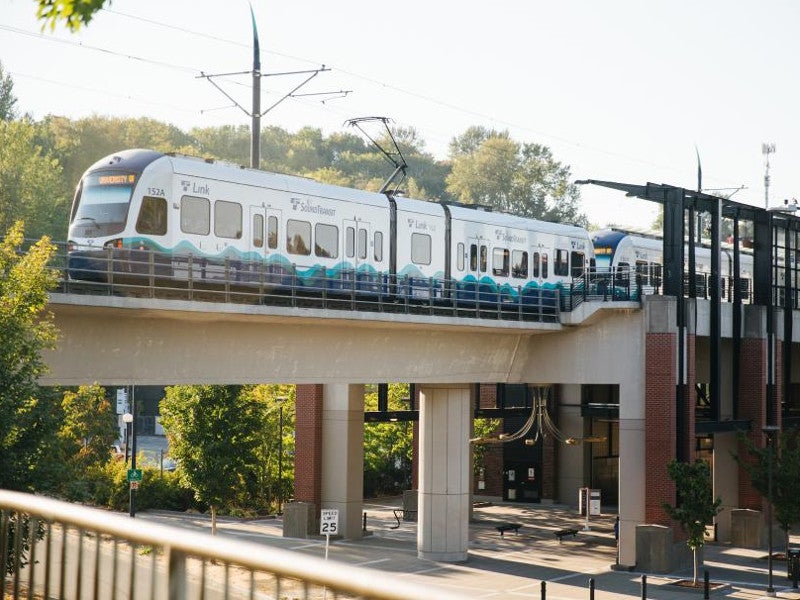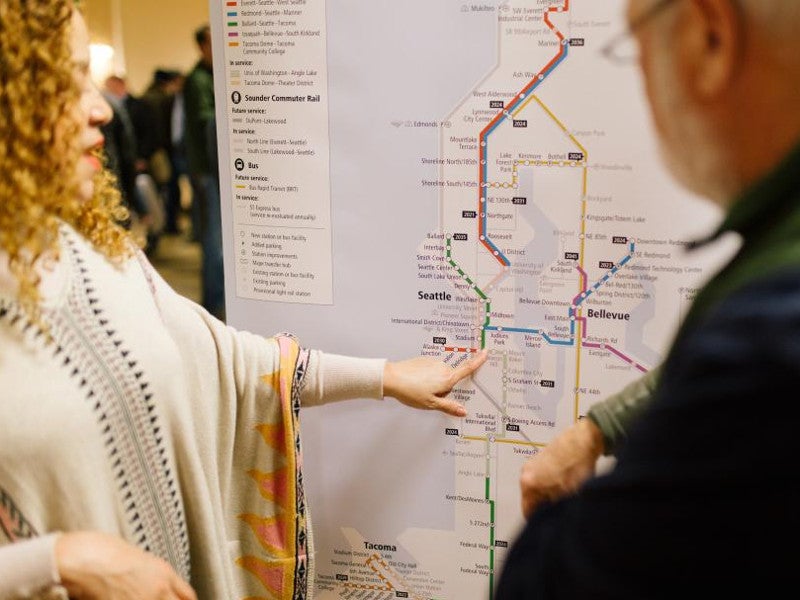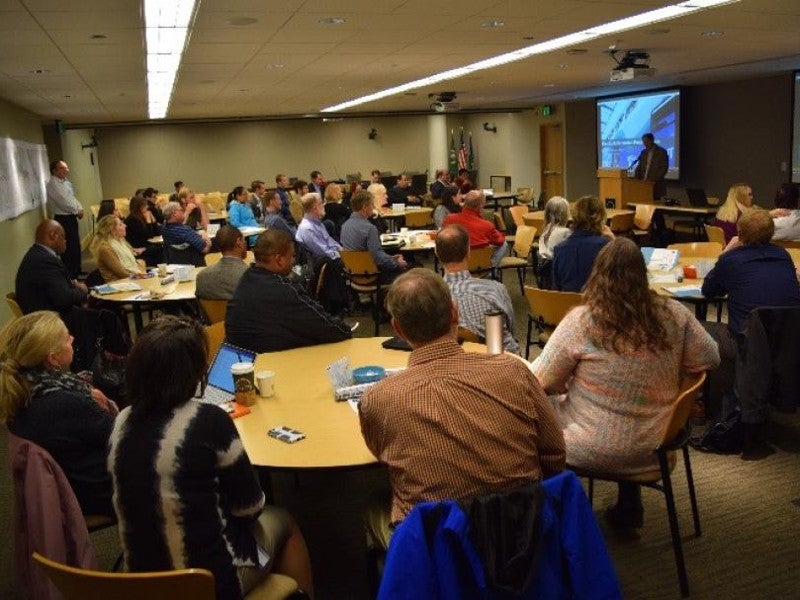Downtown Redmond link extension is a proposed 5.47km-long light rail line, which will extend the blue line from Redmond Technology Station to Downtown Redmond.
The project is a part of Sound Transit’s strategy to construct a 186.6km regional light rail system by 2041. It received voter approval in November 2016.
The light rail link extension project also received approval from Sound Transit for a $50m allowance, which allows the project team to evaluate alternative concepts during the procurement process.
Construction of the light rail extension project is expected to start in 2019 and is scheduled for completion in 2024.
Downtown Redmond link extension details
Downtown Redmond link extension will begin at the East Link interim terminus at NE 40th Street and terminate at the east of 164th Avenue NE.
The project will also involve the construction of two new stations, including SE Redmond Station and an elevated Downtown Redmond Station.
An operations and maintenance facility at Bellevue will be used for managing the operations of Downtown Redmond link extension.
The rail link extension project will include the construction of an overhead catenary system, traction power substations, train control and communications, special trackwork, utilities, and street and trail improvements.
Each four-car train will accommodate 800 passengers, provide 16 wheelchairs for people with limited mobility, and have the capacity to accommodate up to 12 bicycles and multiple suitcases.
Route details
The route from the Redmond Technology Station will run along the SR 520 corridor to south-east Redmond station, which will be situated near the SR 520 and SR 202 intersection.
From the south-east Redmond station, the route will head towards west under SR 520 using the former BNSF Railway corridor. It will then elevate to cross Bear Creek and end at 166th Avenue North-east elevated station and the Redmond Central Connector Trail.
Downtown Redmond link extension stations
An elevated station at the Downtown Redmond will serve as the final stop of the blue line light rail system. It will be situated parallel to NE 76th Street with entry points on the east and west sides of 166th Avenue NE.
The station plaza area will feature built structures, plantings, drop-off areas, art installations and bicycle parking, aimed to enhance the passenger experience.
The south-east Redmond station will have approximately 1,400 parking spaces. It will also provide parking spaces for bikes and bus transfer facilities.
Downtown Redmond link extension benefits and ridership
The Downtown Redmond link extension project will mainly reduce traffic congestion when travelling to Bellevue, Seattle, Lynnwood, and Federal Way. It will also provide easy connections to bus rapid transit and local transit services.
The project will increase mobility, access, and transportation capacity for residents and workers in the region.
Downtown Redmond link extension, including East Link extension, will allow between 43,000 and 52,000 passengers a day by 2026. The service will be available at an eight-minute frequency during peak hours.
The journey time from Downtown Redmond to Westlake will be 45 minutes, while that from south-east Redmond to Bellevue Downtown Station will be 15 minutes.
Contractors involved
Sound Transit awarded a $729.27m contract to a joint venture (JV) comprising Stacy and Witbeck, and Kuney Construction for the design and construction of the Downtown Redmond link extension in July 2019.
WSP was selected to provide design-build project management services for the light rail extension project in August 2018. It will mainly support the preparation and review of the design-build contract request for proposals.





